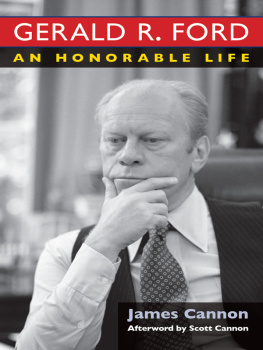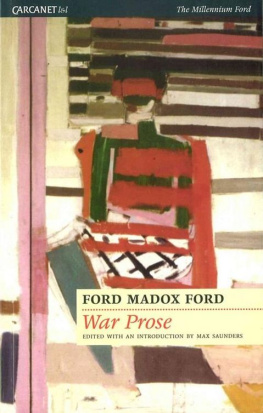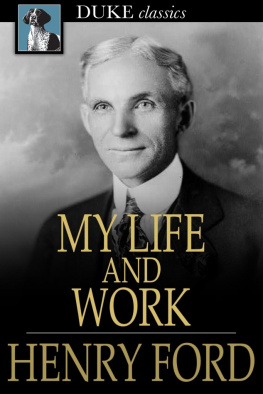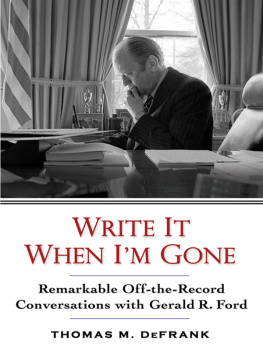Thank you for downloading this Simon & Schuster ebook.
Get a FREE ebook when you join our mailing list. Plus, get updates on new releases, deals, recommended reads, and more from Simon & Schuster. Click below to sign up and see terms and conditions.
CLICK HERE TO SIGN UP
Already a subscriber? Provide your email again so we can register this ebook and send you more of what you like to read. You will continue to receive exclusive offers in your inbox.
We hope you enjoyed reading this Simon & Schuster ebook.
Get a FREE ebook when you join our mailing list. Plus, get updates on new releases, deals, recommended reads, and more from Simon & Schuster. Click below to sign up and see terms and conditions.
CLICK HERE TO SIGN UP
Already a subscriber? Provide your email again so we can register this ebook and send you more of what you like to read. You will continue to receive exclusive offers in your inbox.
OTHER BOOKS BY THE AUTHOR
Known and Unknown
Rumsfelds Rules

Free Press
An Imprint of Simon & Schuster, Inc.
1230 Avenue of the Americas
New York, NY 10020
www.SimonandSchuster.com
Copyright 2018 by Donald Rumsfeld
All rights reserved, including the right to reproduce this book or portions thereof in any form whatsoever. For information, address Free Press Subsidiary Rights Department, 1230 Avenue of the Americas, New York, NY 10020.
First Free Press hardcover edition May 2018
Free Press and colophon are trademarks of Simon & Schuster, Inc.
For information about special discounts for bulk purchases, please contact Simon & Schuster Special Sales at 1-866-506-1949 or .
The Simon & Schuster Speakers Bureau can bring authors to your live event. For more information, or to book an event, contact the Simon & Schuster Speakers Bureau at 1-866-248-3049 or visit our website at www.simonspeakers.com.
Interior design by Joy OMeara
Jacket photograph by David Hume Kennerly/Gerald R. Ford Presidential Library
Library of Congress Cataloging-in-Publication Data is available.
ISBN 978-1-5011-7293-9
ISBN 978-1-5011-7295-3 (ebook)
To my colleagues in the Ford administration, who served a great man with honor and dedication, and to the American people, who had the good fortune that Gerald R. Ford was there when the need was so great and that the center held
Authors Note

Taos, New Mexico
T his book is hardly the work of an impartial observer of history. Gerald R. Ford was my colleague in the U.S. Congress in the 1960s and a man I had known for more than a decade before he became our nations thirty-eighth Commander in Chief. Of the four Presidents I have been privileged to serve, Gerald R. Ford was the only one who had been a longtime personal friend.
The circumstances that allowed me to come to know President Ford date back to the middle of the last century. After leaving the U.S. Navy in 1957, I served as the Administrative Assistant to Congressman David Dennison, a Republican from northeast Ohio. After Dennison, a fine and dedicated legislator, was defeated for re-election in 1958, I joined the staff of Congressman Bob Griffin, where I learned a good deal about his colleague from Michigan, Jerry Ford, and, before long, met Ford in person. Immediately after I was elected to Congress from Illinois in November 1962, Griffin recruited me to solicit support for Ford from the other newly elected members of Congress in his upstart bid to become the Republican Conference Chairman, the number-three position in the House GOP leadership team. Ford was challenging the senior incumbent Congressman Charles Hoeven of Iowa.
I joined Fords effort and our small team went to work. Ultimately, in a coup for the so-called Young Turks of the GOP, Ford won. During that time, I quickly came to appreciate what so many others have seen in Jerry Ford over his lifetime of servicehis honesty, integrity, and basic human decency. Decency can be an underappreciated quality in general, but especially so in a competitive place like Washington, D.C., where brashness and sharp elbows are often heralded. Gerald Fords kindness, midwestern politeness, and willingness to put other peoples interests ahead of his own were so distinctive. Indeed, they were qualities that were desperately needed when he became President. As his political opponent, the Democratic Speaker of the U.S. House of Representatives, Tip ONeill, later reflected, God has been good to America, especially during difficult times. At the time of the Civil War, He gave us Abraham Lincoln. And at the time of Watergate, He gave us Gerald Fordthe right man at the right time who was able to put our nation back together again.
Perhaps because Fords time in the presidency was brief895 daysand was bookended by Richard Nixon and Ronald Reagan, sizable personalities far better known to the American people, he became, in a sense, the man in the middle. To this day his crucial service to our nation during an unprecedented time of testing has neither been fully understood nor appropriately valued. President Ford, of course, would never have believed he was owed anything. He did what he did out of his love of country and his deep respect for public service. That was at least in part what made him such a trusted figure at a time when trust for the presidency was at its nadir.
In American political history, the arrival of Gerald R. Ford to the presidency was what might be called a Black Swan event. His demeanor, down-to-earth yet uplifting, heartened everyone who knew the gentleman from Grand Rapids, Michiganall the way back to his college football teammates. Which brings me to the title of this book.
In football, the center is among the least glorified positions. Nonetheless, it is of central importance. In the middle of the offensive line, it is invariably the centers responsibility to handle the football at the start of every play on offense. If the play goes well, one of the other players on the team receives the plauditsa tailback who breaks a long run, a quarterback who launches a Hail Mary pass, or a receiver who catches the ball and races for the winning touchdown. Though fans may take little notice, the centers teammates recognize and appreciate his importance.
From 1932 to 1934, Ford was the center on the University of Michigan varsity football team. In 1932 and again in 1933, the Michigan Wolverines went undefeated and became national champions. His final season, 1934, however, was tough. While the team won only one game, Jerry Fordat centerremained its heart.
Many years later, in a time unique in the two-hundred-year history of the United States, our country was urgently in need of its center, and the largely unheralded Gerald Ford was on hand. Irish poet William Butler Yeats might have been describing the chaos America was experiencing in 1974 when he wrote back in 1919:
Turning and turning in the widening gyre
The falcon cannot hear the falconer;
Things fall apart; the center cannot hold;
Mere anarchy is loosed upon the world,
The blood-dimmed tide is loosed, and everywhere
The ceremony of innocence is drowned;
The best lack all conviction, while the worst
Next page













